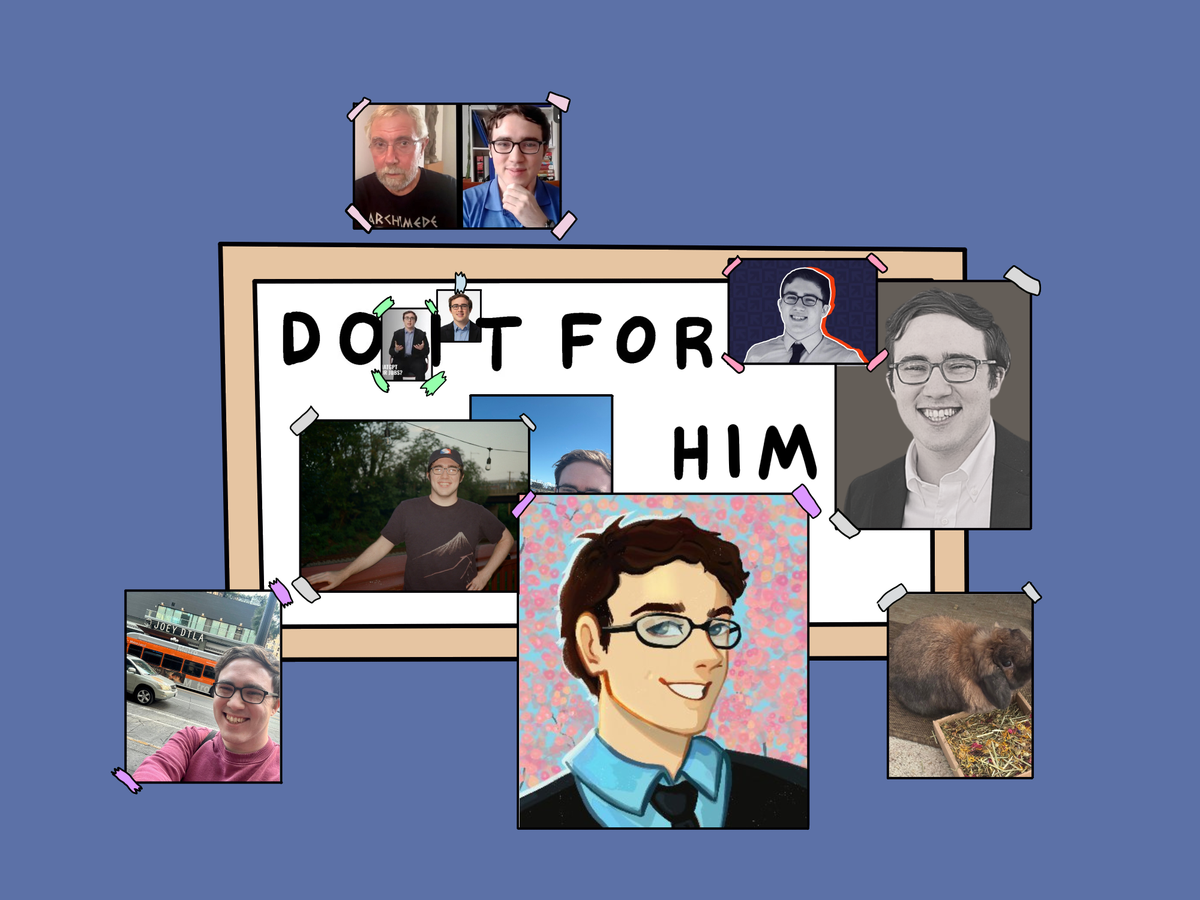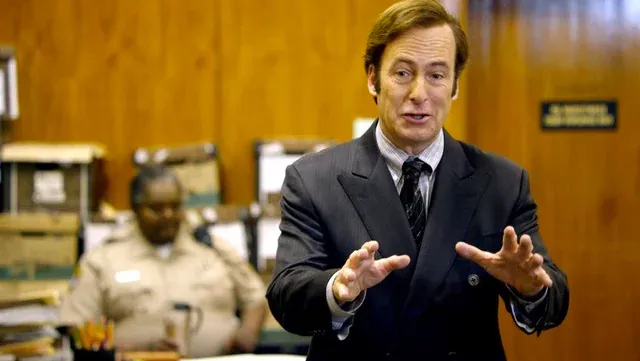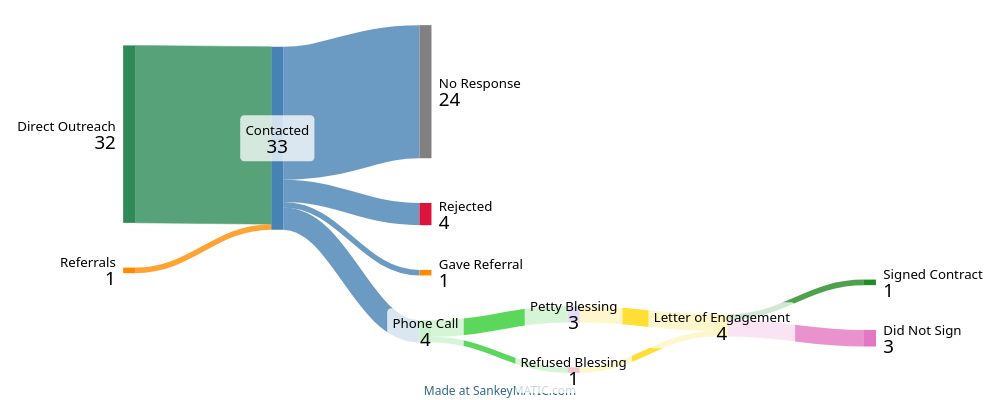Justice for Joey Politano
The Woke Strikes Back

Joey Politano is white. Normally, this is a good thing for him. He makes more money than a brown person with the same skill set as him. He is less likely to be featured on a Nextdoor post about a suspicious prowler in the neighborhood, and a doctor will take his pain more seriously than a black person's pain. All of that outweighs the minor disadvantages he has compared to people like me: I will physically age much more gracefully, I get to say the word chink without scaring the hoes, and get like a hundred dollars from my grandmother1 every Lunar New Year.
But sometimes you come across a privilege that is both good and bad at the same time. In Joey Politano's case, it's the fact that white supremacists keep trying to be cute with him.
You see, Crémieux, a blogger with a few white supremacist tendencies, used Joey Politano's open-source code to make graphics for their blog. Politano - who is not a white supremacist - publicly asked him to stop appropriating his distinctive style and code, and Crémieux didn't take him seriously. Politano is now kind of aesthetically associated with people like Crémieux, and Politano does not want to be.
You would think that the relationship is simple, that Crémieux is simply an asshole who doesn't care about Joey's feelings.

Now, that might be true but there's also another dynamic at play: White delusion. You see, I am an Asian-American transgender woman, and I trust that Joey Politano is woke for moral reasons.

But there's a good chance that Crémieux suspects the opposite: that this entire drama was just for show, that Joey Politano only made a public stink about this to maintain his social credibility as a woke.

As a result, we are in a less-than-ideal situation.

- Joey Politano's work has made me a lot of money in the stock market
- This incident was not good for Joey Politano's mental health, which means less work output
- Joey is a good person who deserves to have mental health even if his work isn't super profitable for me
- Crémieux is happier, thinking that they were doing a secret handshake with someone who was actually on their side.
That delusion which dwells deep within Cremieux's desire to belong needs to be crushed. There must be some action or method of communication that clearly allows Joey Politano to communicate, "Crémieux, I truly believe that you are a douche."
The Crémieux Question
We must secure the existence of liberal society and a future for woke leftists. The easy part is recognizing that people like Crémieux stand in opposition to that, and the hard part is finding a way to stop those people while effectively pursuing our dual mandate.
Closing the source
In Joey Politano's own words, "All my code has been public forever because I am trying to be a good public intellectual," which is a noble principle. If future Joey Politano were to close his own source code, he would make it much more difficult for súc vật like Crémieux to benefit from his work and cause psychic damage. However, it would also reduce a lot of transparency in Politano's works.
Simple questions like:
- "How did you get this number?"
- "How did you calculate that?"
- "Are those numbers compared properly?"
...are much more difficult to answer if future code behind Politano's beautiful graphs is locked behind closed doors. To be clear, this isn't about ensuring Politano is being truthful and honest; it's about the general principle of being extremely open about one's methodology so that others can identify mistakes and offer improvements - it's about good science. Closing (or hiding) the source is bad for good science!
Selective Licensing
What many academics do is selectively grant access to their code. You email someone, ask for a source, and then they may or may not send it to you, depending on how trustworthy the requester seems.
The problem with this process is that:
- Adding an extra step is enough to deter a lot of good-faith colleagues from earnestly and positively engaging with Politano's work
- Politano, of course, would have to constantly field requests for his code, eating into other essential tasks such as making me shmoney writing his blog
A Petty Solution
What if there was a way to keep Politano's code open for the good of science, while also preventing appropriation by thằng ái kỷ like Crémieux? It would be a variation of copyleft - copywoke, if you will - that basically looks like this:
- You are permitted to use, modify, and redistribute this software for any purpose, provided that:
- redistribution is done under the same license and with appropriate credit to the original author(s)
- you are not on this blacklist:
- Crémieux
- Curtis Yarvin
- Peter Thiel
Of course, this raises other questions that I can immediately answer and elaborate upon further down this essay:
- Is it actually legal to make a software license where you can ban specific, named people from using it? Yes.
- Even if you used an LLM to write most of the legalese, shouldn't you still use an IP lawyer to make sure it's sane? Yes.
- Who, in their right mind, would pay a lawyer to do this? Me.
The Vibe Check

I'd already been using Standard's Petty Software License for a while before I started writing this essay. It was written with the help of LLMs like Claude and ChatGPT, but aside from the fact that LLMs are not actual lawyers, the main problem was that I couldn't copy the granddaddy of copyleft licenses: the GNU GPLv2. You see, the creators of that license are okay if you:
- Write your own code
- License it under the GPLv2
- Copy that license verbatim on the internet for whatever you write
But the Free Software Foundation still owns the copyright to the license itself. It's like they wrote a book called The Blue Nowhere and said, "Okay you can download the book for free to make as many copies as you want. But you can't change the book." This meant that unless I wanted to get sued for copyright infringement, I couldn't just take the GPLv2, add in a provision that says, "But if you're Krishan A. Patel you can't use any of this code" and then mark my project as completed.
Luckily for me, Creative Commons released their licenses into the public domain, so I could tell Claude and ChatGPT to use one of their codes as a basis. Unfortunately, Creative Commons was designed for creative works and not code. This meant that Standard's Petty Software License v1.1 was a hodgepodge of legal jargon rather than an airtight license.
I'd have to find a lawyer to review this.
It's Legal If You're Not Racist

I reached out to thirty-three legal firms across Denver, Florida, California, and Washington, D.C. for help on this project.

Four gave me a phone call. I asked all of them a simple question: Can I legally exclude specific, named people or entities from my open source license?
Out of those four, three2 of them basically said, "Yes, as exclusions aren't being done on the basis of some protected characteristic or violating antitrust law." That was good, because our problem with Crémieux is that they're a racist, not that they're a white. In short, copywoking is legal. The general idea of this project was legally sound, so it was time to move onto the finer details. All four of them sent me a letter of engagement, and I signed with the one who seemed most amused by this project: War IP Law.
For a Fistful of Dollars

A few weeks after sending them a $1000 retainer and my draft license3, I received an email:
Dear Standard,
Thank you for your business and for your confidence in War IP Law PLLC.
Attached is your invoice for the work performed for you, specifically, reviewing the draft licensing agreement and sending you our comments. We have applied your retainer to the invoice and the invoice is paid in full and the balance of the retainer is $227.50.
We’ve attached a tracked changes copy of the licensing agreement showing exactly what changes we made, and some comments that further explain the changes.
I was excited to hear that I only had to spend $750 instead of maxing out my budget, but then the email continued:
As far as a quote for your blog goes, we can give you this one.
“Hey Standard, sorry we can’t tell you this licensing agreement is ‘airtight,’ but we can definitely 100% certify that this is in fact a licensing agreement.”
So naturally, I asked for a better quote, something like
"Yeah, I think this would stop Crémieux from using Joey's code while also letting most other people evaluate it. As a general policy we don't say things are 'airtight' even if we're confident in them, but we can give this the following emojis." [insert emojis]
Professionals as they were, they humored my request with seriousness and gave me:
Yeah, I think this would deter Crémieux from using Joey's code while also letting most other people evaluate it. To some extent the strength of an agreement is proportional to its length. We can give this agreement the following emojis. 😊👍👌
Conclusion
Joey, we will always remember where we were and what we were doing right when something big happened. In 2024, I was on a plane to Washington, DC when Kendrick Lamar's Not Like Us dropped. In 2020, I was tripping balls in Southern California when Donald Trump declared "a state of national emergency... two very big wuords...".
What was I doing when I found out that Crémieux, a crypto-Nazi, had used your open-source code to make graphics for their stupid4 blog? I don't remember - not because I didn't care, but because fascists exploit liberalism all the damn time, and there's usually nothing5 we can legally do to stop it. But then months later, I had this idea.
Let me know if you actually want to use my license for your future code. I assume you already open-sourced your existing code so we can't do much about that, but you could use this for your future projects. I understand that there may be some people on my blacklist whom you don't want to antagonize, so I made Standard's Slightly Lesser Petty Software License. The SSLPSL's blacklist only features people and organizations that are Crémieux-ish, and not random Twitter people that I've had beef with.
Footnotes
1 Love her by the way
2 The fourth lawyer, well... he basically refused to answer any questions until I paid him money so I politely ended the call.
3 This is already noted in the license text, but to be clear many parts of the license were copied verbatim from Creative Commons Share-Alike International. This is legal and well within the bounds of the law, as the text of the license itself was explicitly released into the public domain.
4 Do not take Crémieux's advice on using bootleg GLP-1 inhibitors, specifically the part where he tells you that you can get your needles and syringes from Amazon. No! Amazon has no quality control. Med-Vet is probably more reliable than Bezos.
5 The last time I made a bunch of money off information gleaned from someone's tweets, it was the Covid times. Someone was knowledgeable about epidemiology, and I was able to short the market early enough. That led me to make money to escape my now-estranged parents. Matt Parlmer bullied her for being too late to sound the alarms, and she left Twitter. I can't do anything about the Matt Parlmers of the world, but I can mitigate them from fucking with my money by being more publicly appreciative of my sources.


